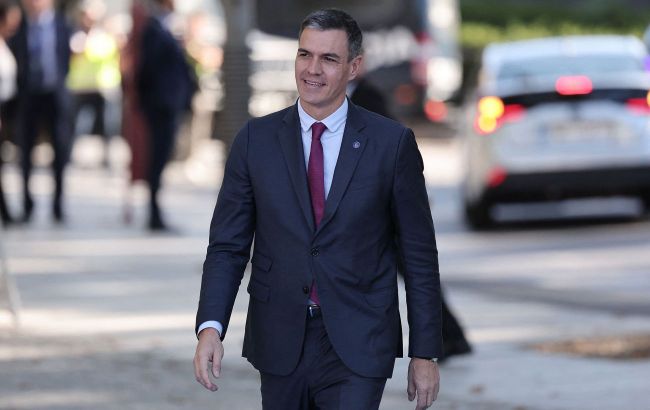Prime Minister of Spain supported amnesty for Catalans
 Acting Prime Minister of Spain Pedro Sánchez
Acting Prime Minister of Spain Pedro Sánchez
Spain's Acting Prime Minister, Pedro Sánchez, announced on Saturday that he wants to grant amnesty to Catalans. He needs support in Parliament to do so, according to Reuters.
Spain's Acting Prime Minister, Pedro Sánchez, stated on Saturday that he wants to grant amnesty to the Catalans who attempted to separate from Spain in 2017 to gain their support for forming a government.
"In the interest of Spain, in defence of coexistence among Spaniards, I defend today the amnesty in Catalonia for the events of the past decade," said Sánchez.
Sánchez is trying to form a government three months after the elections. He reached an agreement to form a coalition with the Sumar party, but their support is not sufficient to secure a majority in parliament and the position of prime minister.
He needs the support of Catalan separatist parties who have demanded the passing of an amnesty law. This law could cover over 1,400 individuals who were involved in the attempt to achieve independence.
The parties have stated that their support also depends on holding another independence referendum.
"To continue moving forward, we must overcome all the episodes that in the past divided us and fractured our societies," said Sánchez.
The proposal of granting amnesty to Catalans has sparked protests in Spain. Sánchez's opponents argue that he is jeopardizing the rule of law for his political advantage.
A poll conducted in September showed that 70% of the respondents, including 59% of socialist supporters, were against amnesty.
Referendum in Catalonia
The independence referendum in Catalonia took place on October 1, 2017. The question posed was: "Do you want Catalonia to become an independent state in the form of a republic?"
According to the Catalan government, 90.18% voted in favor of independence.
The Spanish government and the Constitutional Court of Spain declared the referendum illegal. The Spanish government argued that the referendum was a violation of the Spanish Constitution, which prohibits regions from holding independence referendums without the central government's consent.
Following the referendum, the Spanish authorities arrested "leaders" of the Catalan separatist movement, including the President of Catalonia, Puigdemont. He was sentenced to 9 years in prison for attempting to secede from Spain.

